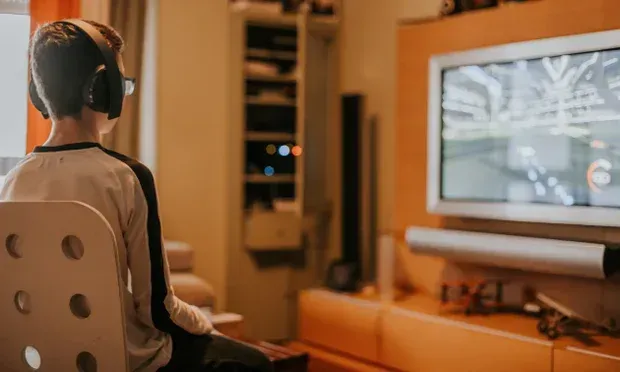Online Gaming Addiction
Advance Minds Blog
A safe space to explore subjects within the community such as mental health, substance abuse and personal identity.
Our safe space also provides the opportunity for real individuals to express their hardships and success through writing.
Online Gaming Addiction

Online gaming addiction refers to the excessive and compulsive use of video games, particularly multiplayer online games, that interferes with daily life and activities. It is characterized by an inability to control gaming habits, prioritizing gaming over personal, social, or work responsibilities, and experiencing negative consequences due to gaming. While gaming can be a fun and engaging activity, for some individuals, it can develop into a behavioral addiction that negatively impacts mental health and well-being.
Key Signs and Symptoms of Online Gaming Addiction:
- Preoccupation with Gaming: Constantly thinking about gaming, planning the next session, or being unable to focus on other tasks due to thoughts of gaming.
- Loss of Control: Difficulty in limiting the amount of time spent gaming, even when trying to cut down or stop.
- Neglect of Responsibilities: Ignoring important responsibilities, such as work, school, or family, in favor of gaming.
- Social Withdrawal: Spending more time online than with friends or family, leading to isolation from real-life social interactions.
- Mood Changes: Feeling irritable, anxious, or depressed when not playing video games.
- Escapism: Using gaming as a way to escape from real-life problems, stress, or uncomfortable emotions.
- Tiredness or Sleep Problems: Staying up late or losing sleep to continue gaming, leading to physical exhaustion and health issues.
- Physical Symptoms: Strain on the eyes, headaches, back pain, and carpal tunnel syndrome due to long hours spent gaming.
- Relationship Problems: Conflicts with family, friends, or significant others due to excessive gaming habits.
- Financial Problems: Spending excessive amounts of money on in-game purchases, subscriptions, or upgrades.
Causes of Online Gaming Addiction:
- Psychological Factors:
- Escapism: Gaming often provides an escape from real-life challenges or emotional distress, offering a sense of achievement, adventure, and control.
- Dopamine Release: Online gaming triggers the release of dopamine, the brain’s “reward chemical,” reinforcing the behavior and leading to repeated play.
- Sense of Community: Multiplayer online games offer a sense of belonging through team-based play and interaction with others in the gaming community.
- Game Design: Online games are specifically designed to be immersive and engaging. Features like achievements, leveling systems, and in-game rewards encourage players to continue playing for extended periods.
- Personality Traits: Certain individuals with low self-esteem, anxiety, depression, or other mental health issues may be more vulnerable to gaming addiction.
- External Pressures: Factors such as peer pressure, the desire to achieve social status within gaming communities, and competitive environments can lead to excessive gaming.
Effects of Online Gaming Addiction:
- Mental Health Issues:
- Anxiety and Depression: Excessive gaming can exacerbate feelings of loneliness, depression, and anxiety.
- Increased Stress: Pressure to perform well in the game or maintain online status can lead to heightened stress levels.
- Impaired Cognitive Function: Prolonged gaming can affect attention, memory, and decision-making abilities.
2. Physical Health Problems:
- Obesity and Poor Fitness: Long hours of gaming lead to a sedentary lifestyle, increasing the risk of obesity, poor posture, and related health issues.
- Sleep Disorders: Disrupted sleep patterns and insomnia are common in those addicted to gaming.
- Eye Strain and Fatigue: Continuous screen time can lead to digital eye strain, headaches, and physical fatigue.
3. Social and Relationship Issues:
- Isolation: Over-involvement in gaming often leads to withdrawal from real-life social interactions, straining relationships with family and friends.
- Academic or Career Impact: Neglecting school or work due to gaming can lead to poor academic performance or career setbacks.
4. Financial Consequences: Excessive spending on in-game purchases, subscriptions, or microtransactions can lead to financial strain, especially for those who play pay-to-win or freemium games.
Treatment and Solutions for Online Gaming Addiction:
- Cognitive Behavioral Therapy (CBT): CBT is one of the most effective treatments for behavioral addictions, including gaming. It helps individuals identify and change negative thought patterns and behaviors, replacing gaming with healthier activities.
- Digital Detox: Taking breaks from screens and gaming by engaging in physical activities, spending time outdoors, and socializing with family and friends helps reduce gaming time.
- Setting Boundaries: Implementing time limits on gaming and setting priorities for other activities, such as work, study, or social interaction, can help in managing gaming habits.
- Support Groups: Joining support groups or therapy groups specifically for gaming addiction can provide accountability, understanding, and motivation to reduce gaming.
- Professional Counseling: Licensed therapists and addiction specialists can offer guidance and tailored treatment plans to help individuals regain control over their gaming habits.
- Family Involvement: Involving family members in the treatment process can provide additional support and encouragement to the individual, helping them replace gaming with healthier activities.
Prevention:
- Educating Parents and Children: Parents should educate children about responsible gaming and monitor their online activities. Establishing clear rules and time limits can help prevent gaming addiction from developing.
- Balance: Encouraging a balanced lifestyle with time for school, hobbies, and outdoor activities can reduce the risk of excessive gaming.
- Setting Boundaries in Game Design: Game developers and platforms can implement time limits, warnings, or reminders to help players manage their gaming time.
Conclusion:
Online gaming addiction is a serious behavioral issue that can have significant negative impacts on mental, physical, and social health. Early intervention, professional treatment, and healthy lifestyle habits are essential to overcoming this addiction and restoring balance to one’s life.
















